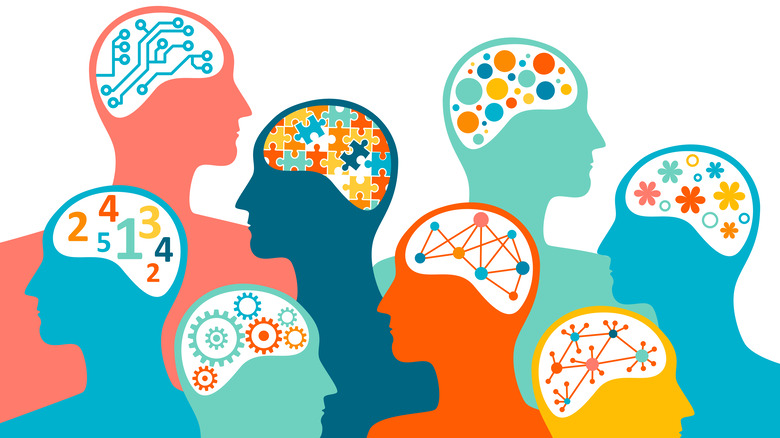If you’ve spent any amount of time on social media lately, you may have come across the terms “neurodivergent” or “neuroatypical.” While there’s a lot of buzz, particularly through user-generated content and videos, not many are clear on what these terms mean or what they are being used to describe.
It’s important to note that while information circulating on social media may suggest that these terms are describing certain conditions and behaviors, they are very broad, non-medical descriptors of people who experience a variation in the way their brains function, Forbes explains. Both terms are used in relation to a wide array of symptoms, behaviors, and thought patterns commonly associated with diagnoses such as ADHD and autism spectrum disorders (via FHE Health). So why use different terms? FHE Health explains that for individuals who experience certain mental health conditions, there can be an associated stigma when discussing diagnoses or experiences with people who are not similarly affected. By creating terms that emphasize their experiences simply as differences rather than deficiencies, a more positive experience can be had.
Neurodivergent versus neuroatypical

So what is the difference between neurodivergent and neuroatypical?
First off, individuals who have not been diagnosed with a condition related to mental functioning are considered to be neurotypical, according to FHE Health. Since neurotypical individuals are those without any type of difference in their brain activity, individuals who have such differences are considered to be neuroatypical.
Where neuroatypical simply refers to having differences in mental processes, the term neurodivergent or neurodivergence refers more specifically to individuals who experience particular developmental disorders (via WebMD). It’s commonly used to reframe these disorders as variations in normal and expected brain activity patterns. This includes attention deficit disorder, autism spectrum disorders, dyslexia, and other learning disorders. The Cleveland Clinic explains that the term is used as a way to describe the way the brain functions differently in an attempt to help discussions about care.
Forbes relays that the term neurodivergence was originally coined by sociologist and autism advocate Judy Singer, who experienced the social challenges of being diagnosed with an autism disorder in her childhood. Her goal was to help individuals with divergent brain functioning to discuss their symptoms and experiences without the same stigmas of being labeled as abnormal or different, and to challenge people to change their ideas about the diverse ways our brains can function.




